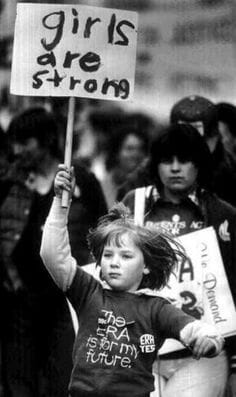International Women’s Month (celebrated in March) and International Women’s Day (celebrated on the 8th of March) is an important global holiday marking the progress of women’s rights. It serves as a pertinent turning point in women’s rights and suffrage movements, bringing attention to various issues that women have faced over time (such as gender equality, fair workplace rights) and currently face (reproductive rights and so on).
Why March? The earliest mentions of International Women’s Day traces back to a common story told in New York City in 1857 on March 8. Female textile workers marched out in a protest against sweatshop working conditions and a demand for women’s suffrage as the working conditions toward women were extremely unfair. This was the first organised strike by working women in the Lower East Side of New York, and was an inspiring story of unionism. Unfortunately, there is little historical evidence confirming this story, despite its wide circulation.

Although it’s difficult to pinpoint the exact moment in which the movement was catapulted, numerous things for women’s rights happened. In the 1890’s, New Zealand was the first country to give women the right to vote in parliamentary elections. This inspired the universal female suffrage movement and garnered significant international attention and support.
The true origin of choosing March 8 allegedly comes from the Second Internationalist Socialist Women’s Conference in 1910. Here, activists gathered, including an incredibly well-known German activist named Clara Zetkin who was part of a Socialist Women’s group wanted a date to help solidify the rights of women and chose this date to honour a worker’s strike in Russia.
By the 1970’s, feminism globally was a supported movement, and the united nations were looking to formally sponsor an annual celebration of International Women’s Day and amplify the dissemination of information around women’s rights and history. In the 1980’s, President Jimmy Carter of the United States issued a presidential proclamation declaring the week of March 8th to be Women’s history week. Shortly thereafter, Congress declared March as National Women’s history month in perpetuity – meaning that March was now the month marked in honouring the role of American women in history. This became the global date to celebrate the achievements of women over time strengthened by the ratification of this by the United Nations.

Although the rights of women have significantly evolved over time, there are still a number of countries with harsh sanctions against women. In western and fully developed countries, the Organization for Economic Cooperation and Development have put out a study solidifying that as of 2022, despite now being a major presence in the paid labour force in all regions of the world, there is a significant gap between average wages of women and men. Evidence suggests that in western countries the compensation for a particular type of job is related to gender rather than education, experience or expertise.
So this International Women’s Month, as we celebrate the women who have fought tirelessly and courageously for equality. It’s an opportunity to celebrate the women who have helped in the early days of rights, but also for the continuous call to change demanded by evolving circumstances over time (i.e., the need to still focus on gender inequality in the workplace).
Show your support on social media for the cause by sharing posts and having an open dialogue about women’s causes, advocate for gender equality in your workplace, and even head out for a coffee date with the ladies in your office!








